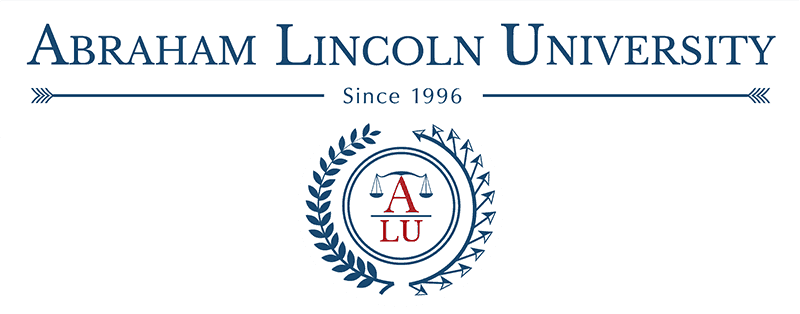Financial Aid Forms
- Free Application for Federal Student Aid on studentaid.gov
- Master Promissory Note (MPN) on studentloans.gov
- Entrance/ Exit Loan Counseling on studentloans.gov
How to use the IRS Data Retrieval Tool with your FAFSA*
When you complete the Free Application for Federal Student Aid (FAFSA), you will be prompted to use the IRS Data Retrieval Tool to upload your/your parents’/your spouse’s tax information into your FAFSA online directly from the IRS. The IRS Data Retrieval Tool makes it easy to transfer tax information accurately to the FAFSA and reduces mistakes and delays in the processing of your financial aid.
The IRS Data Retrieval Tool is available:
- approximately 6-8 weeks after your paper tax return has been accepted by the IRS
- approximately 3-4 weeks after you file a tax return electronically and it has been accepted by the IRS6
- if you owe a payment to the IRS, the payment must have been made in full
* Not all tax filers will be able to use the IRS Data Retrieval Tool. For more information about the IRS Data Retrieval Tool please visit www.studentaid.gov.
Student Loan Repayment
Not Sure Which Loans You Borrowed, How Much or When? – Visit the National Student Loan Data System (NSLDS) to look up your federal student loan history at the U.S. Department of Education’s student loan database – https://nsldsfap.ed.gov/login
Repaying My Student Loans – www.studentaid.gov/sa/repay-loans
Repayment Plan Options – https://studentaid.gov/manage-loans/repayment/plans
Loan Repayment Estimator – https://studentaid.gov/loan-simulator/
iGrad – Financial Literacy resources and information – www.iGrad.com
Federal Student Aid Ombudsman – https://fsapartners.ed.gov/help-center/fsa-customer-service-center/service-centers-for-students/office-of-the-ombudsman-fsa
Federal Verification Policy
FAFSA Verification
Each year the Central Processing System (CPS) of the US Department of Education selects a number of FAFSAs for “verification.” If your FAFSA is selected for verification, the Financial Aid Office will need to collect additional documentation from you and verify some information that you provided on the FAFSA; for example, income information, number of people in the household, or citizenship status, to name a few. The information on this page will give you an idea of what to expect if your FAFSA is selected for verification.
For instructions on how to order a Tax Return Transcript, visit the IRS website.
Notifications to the Student
A student whose FAFSA information is selected for verification will be notified of his/her selected status as follows:
- the CPS will notify the student on his/her Student Aid Report (SAR). Next to the EFC will be an asterisk (*) referring to a comment in the student section of the SAR that tells the applicant that he/she will be asked by the Institute to provide documentation for verification; and
- The ALU Financial Aid Office will send email notifications to a student selected for verification. Notifications to the student will begin as soon as a FAFSA selected for verification is received by the Financial Aid Office. Notifications will continue until either the student has submitted all documents required for verification or the deadline for submission has been reached.
Deadlines and Failure to Submit Documentation
- For federal aid programs, excluding the Federal Pell Grant Program: A student must submit verification documentation before funds will be disbursed or by June 30 of the aid year, at the latest. The ALU Financial Aid Office will review the documentation and reevaluate the student’s eligibility for federal financial aid and will award aid based on the availability of federal funds at the time of documentation submission.
- For the Federal Pell Grant Program: A Pell Grant applicant selected for verification must complete the verification process by the federally established deadline is the October 1, or 120 days after the last day of the student’s enrollment, whichever is earlier. The verification process is complete when the University has received all requested documentation and a valid processed FAFSA report is on file including any necessary corrections to the report. If the student does not provide the verification documentation or the Institute does not receive the valid processed FAFSA report (ISIR) by the deadline, the student forfeits his/her Pell grant for the award year.
Correcting Errors on FAFSA Information
Upon receipt of the SAR, the student should review all information listed on the SAR and submit for processing any errors reported on the original FAFSA to the CPS.
In order to avoid registration holds or delays, verifications documents should be submitted no later than one week prior to the registration deadline. To avoid the cancellation of the student’s financial aid award, the final deadline for submitting verification documents is the end of the aid year.
An electronic summary of a student’s original FAFSA and any corrected FAFSA information will be sent from the CPS to the University. Once received, all FAFSA data, Verification Worksheets, and any supplemental verification documents will then be reviewed by the Financial Aid Office to verify the accuracy of the student’s FAFSA information and to calculate his/her eligibility for need-based financial aid.
If a student’s FAFSA information changes as a result of the verification process, the Financial Aid Office staff will:
a) notify the student via ALU email as to which FAFSA data items must be corrected by the student and submitted for processing to the CPS at www.fafsa.gov
b) recalculate the student’s Federal Pell Grant on the basis of the recalculated EFC;
c) adjust the student’s financial aid package on the basis of the recalculated EFC
d) notify the student via ALU email of any change to his/her financial aid package.
Referral of Fraud Cases
Students and parents are advised that the Institute must and will refer to the Office of Inspector General (OIG) any credible information indicating that an applicant for Federal Student Aid may have engaged in fraud or other criminal misconduct in connection with FAFSA applications. Common misconduct includes false claims of independent status, false claims of citizenship, use of false identities, forgery of signatures of certifications, and false statements of income. Note that fraud is the intent to deceive as opposed to a mistake on an application.





